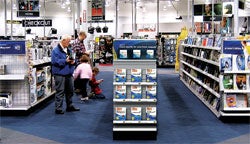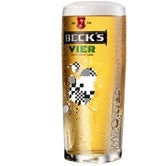Meet the teachers
The mark of a great teacher is one who gets pupils to find physics fascinating, speak great German and fall in love with maths, without them even realising they are learning.

For brands that can leverage the power of teaching, there is the potential for boosting profits through the development of better customer relationships, being able to charge price premiums and building their reputations. And by behaving as an authority, just as a teacher does, brands can enhance their offer by attracting a loyal following of consumers.
American electronics giant Best Buy hopes this tactic will take it to the top of the class in the UK, saying its point of difference is making tricky subjects easier to understand. It is employing a force of blue-shirted staff who will act as product educators (see case study, below). Meanwhile, Apple runs The Theatre, free workshops for film directors, designers and DJs where they can learn how to use its products. And TV channel Nickelodeon is helping to enlighten children about environmental issues by partnering with Adventure Ecology for its Big Green Thing campaign.
Behaving as a teacher is a useful strategy for marketers when consumers are emerging from a recession and feeling cynical, says Al Moffatt, president and chief executive of global marketing network Worldwide Partners. “People’s bullshit radars are on full alert now and they feel they have seen every trick. I think smart companies realise that in order to endear people to their brand, they have to educate them and that this is the new way of selling.”
Becoming a master in a subject will help brands gain respect, Moffatt adds. But he warns that this strategy could be something that market-leading brands, rather than challengers, do best as they have built up the authority to do so (see Viewpoint, below).
Moffatt cites US brand Chevron as having cleverly turned to teaching people that it should be viewed as an energy company, not purely an oil firm. Moffatt says: “It is educating people about energy demand and what it means to be an efficient energy supplier, not just a gas [gasoline] company.”
But being a teacher has to be true to the brand’s philosophy and internal working structure. Oil company BP, for example, became “beyond petroleum” a few years ago, repositioning itself as an authority on developing non-fossil fuel energy, but its recent catalogue of disasters, such as the Texas refinery fire and the leak in the Gulf of Mexico, has dented the brand’s claim to an educational positioning (MW 13 May).
Being “the teacher” can be an effective tactic for brands keen to tell consumers about something new. Waitrose is using the method to take its Essentials value range to a broader audience. James Briscoe, managing director at agency Uniquedigital, says introducing the new range was a bold move during the recession and required the retailer to educate its shoppers about it.
“This was an aggressive strategy for a supermarket associated with quality and luxury, but it listened and understood that customers were more price-sensitive than normal,” says Briscoe. More recently, it has taken on a figure of authority role by teaching people how to cook recipes using celebrity chefs Delia Smith and Heston Blumenthal.
Being a great educator isn’t just for upmarket or big brands such as Waitrose. Smaller brands can use education marketing too. St John Ambulance has always billed itself as an educator as well as a provider of first-aid services and is currently running an ad campaign promoting its expertise (see case study, below). And tree-top adventure course company Go Ape has done this by styling itself an expert in adventurous recreation with its strapline “Live life adventurously”.
Go Ape runs 26 courses in the UK and has just expanded to the US. Head of marketing Will Blair explains how important being seen as an expert is for the company: “Any brand should have authority, whether consciously or not. It’s all very well having a product but people need to believe in you to get some loyalty and buy-in.
“Our authority is two-fold. First is the safety aspect. We have systems that are highly tuned. The other is that the onus is on the customer to have their own adventure,” he says. Rather than have an instructor lead people around its tree-top courses, Go Ape teaches customers how to use a harness so they can have their own adventures.
The company sees being positioned as an expert that teaches consumers about adventure as far more alluring than being a chain of leisure parks. “If we just sold high-wire trips, it would be quite hard for people to think about us more broadly,” says Blair. “Owning adventure would be a bit of a grand way of saying it, but having authority within the adventure world means we can extend into other areas. We can inspire people to live more adventurously.”
He adds that people whose exercise habits have lapsed have sometimes been inspired to get outside again by doing a course. “Our magazine Tribe features emails from people saying that Go Ape has changed their lives, having had an experience on an emotional level,” claims Blair. The company’s future planned brand extensions, he says, will appeal to those who have done the courses and want to learn more about adventures.
Teaching can also be a way for a brand to unravel complex subjects or propositions, such as technology. For example, electronics brand LG runs The Gadget Guru through London radio station LBC, a twice-weekly slot where listeners can ring in to pose their problems to experts. LG marketing director Paul Trueman explains: “We’re giving technology a human face. We asked people what HD and LED meant, for example. We thought people were so used to these terms but actually many had no idea.”
LG uses basic teaching aids to help people choose its products, for example by giving customers a piece of paper matching the dimensions of a TV that they then use to measure a space in their living room. The ultimate aim is to get consumers to view LG as the accessible professor. “It’s about consumers thinking that we understand something that other brands don’t get,” says Trueman.
While LG’s campaign is obviously branded, a more subtle approach to teaching consumers can also be effective. Travel company Exodus, part of TUI, presents itself as a specialist. Head of marketing Rob Dixon explains that the brand runs talks on wildlife photography, for example, but these are not sales pitches.
“We call them photographic lectures. They are not ‘heavy sell’ at all. People are quite surprised when they come to the lectures that there is little mention of Exodus. Instead, it’s very informative and includes tips on taking pictures.
“For the type of clients we have, who are quite affluent and well-travelled, the hard sell is not going to work. Some of our holidays cost £15,000 so we need to tell people everything about those trips and then they make up their own minds,” Dixon says.
But surely running generic talks runs the risk that the students won’t buy from the teacher? “As head of marketing, I am here to sell holidays, but sometimes people come along to the talks every year and love them, yet say they are never going to book a holiday.” However, this enthusiasm even without sales is enough, since these people may become advocates of the brand, says Dixon.
Being a smaller, more boutique company within the travel industry means that margins can be greater, says Dixon, and having a brand with such authority means that positive endorsement is easier to come by, he claims.
“We get a lot of PR coverage. We do punch above our weight with press coverage.” He mentions a debate with Times Online about the Indian government planning to stop “tiger tourism”. Dixon claims that getting involved in that debate as an authority contributed to the country changing its mind on the ban.

Exodus doesn’t intentionally focus on education for its other holiday products, but Dixon admits that the ethos does seem to carry through the business. “People like to come back having learnt about something from one of our trips. For example, a lot of people who do our cycling holidays weren’t really cyclists beforehand.”
Other brands are more vocal about their desire to be seen as educators. Baby milk brand Aptamil has recently relaunched its website, aiming to enable women to learn about pregnancy, birth and early childhood. It wants to appeal to first-time mothers who are looking for in-depth information.
While the site is clearly branded and includes product information, Aptamil CRM manager Clare Tresidder insists the brand’s primary concern is informing people about baby nutrition and helping mothers, rather than selling the product.
“We are not using this as a ‘here today, gone tomorrow’ marketing proposition. It’s always been very much grounded in infant nutrition,” she says. Aptamil parent company Danone trains all its staff in food and nutrition and Tresidder says that performance is partly measured by their knowledge of those subjects.
Mothers-to-be who sign up to the website are sent emails relevant to their stage of pregnancy, giving them advice on what to expect. The website directs visitors to a specialist phoneline staffed by 40 experts – but consumers do not have to be signed up to the site to call. “We are there to support people at any stage. We position ourselves as helping mothers whenever they need us and to give their baby a healthy start,” says Tresidder.

American electronics retailer Best Buy relies on its shop floor sales people to be the teachers who can help consumers learn – and then purchase. Its strapline “This is how it works”, sums up this positioning. Its first UK store opened last month and it plans to open four more by the end of the year, using its teaching strategy to aggressively compete with the likes of Currys, Comet and John Lewis.
Putting the right team together before training staff to be good teachers helps to make them the best educators, claims Paul Minett, district manager for Best Buy in the UK. He says that staff are motivated by being part of a good team, rather than being paid on commission.
He claims: “All of us has been part of a great team at school, in football or netball, for example. You didn’t get paid for that but you’d do anything to make sure you were there for training and games. It’s the same principle here.
“And saying ‘treat people how you would like to be treated yourself’ is a cop-out. Find out how people would like to be treated because everyone is an individual. We just make it a really great place to work.”
Training is what turns good staff into great teachers, says Best Buy UK marketing director Kevin Styles. He says: “People try to copy Best Buy the world over. Getting the latest range in connections or content can be copied, but our secret source is our Blue Shirts, and the culture of the business that allows that to be the case.

“We invest significant amounts of time, energy and resources in making sure that our Blue Shirts and Geek Squad are the best prepared they can be. They do a nine-week training academy. They will understand what the consumer is looking for in a no-pressure, non-commissioned way. They know their stuff, and that makes a difference. If a customer is spending a lot of money, they want to make sure it is right for what they want to use it for.”
Before investing in this training, the company researched what consumers were looking for in an electronics retailer, and customer service came out top. “Service is still the key differentiator in terms of what consumers are looking for. They want value, the latest technology and they want amazing service,” claims Styles.
The line “This is how it works” was researched along with the US version: “Buyer be happy”. Styles says: “Essentially, what we are doing is saying: here’s the consumer issue and the Best Buy solution to that; and this is how it works. We tested ‘Buyer be happy’ with UK consumers but it didn’t seem to resonate with them.”
Case study: St John Ambulance

Al Moffatt, chief executive and president of agency network Worldwide Partners
People want to be entertained but not lectured. We see brands all the time that are self-important. Any great professor should allow you to learn without knowing that you are learning.
Your lesson has to be relevant and meaningful. That seems obvious but we have all seen examples of brands trying to educate people on something that is not relevant or believable to consumers. For example, some American tobacco companies have gone out of their way to educate about the dangers of smoking.
Sometimes it is better for market leaders to educate people about broader issues that relate to their brand, rather than their product features. A brand is then building the category as well as its brand. The logic flows that if you build the category, then as a market leader you will get a proportion or larger share of the market.
This educational approach can be useful for categories where there isn’t a real point of difference. It’s another way to indoctrinate people in your brand message in a soft-selling, high-level manner.
Define your brand, know what you stand for and then use education as one of your tools to help endear your brand to the market. Mercedes has for years taken a tutorial role about what makes a good performance in luxury cars and has certainly positioned itself as the automotive expert.
Brands at all levels can use this strategy. People might think that this is something which only upmarket brands do, but lower and mid-tier companies can do a really good job in their own way about educating people. KFC has done a fairly remarkable job of being the “chicken expert” and its non-US sales are going through the roof. It positions itself as the chicken expert rather than being a fast-food expert.
As a brand starts to mature it has to start evolving. That is a mark of a brand with longevity, expertise and one which educates.
Consider Toyota, one of the most expert brands in the world with longevity. Even during last year’s recall problems, it’s worth remembering that there have been only 13 incidences where the car accelerator got stuck, and it was the floormats anyway. That brand is being hit really hard at the moment. But its role as an expert means sales are still strong in spite of its problems.






